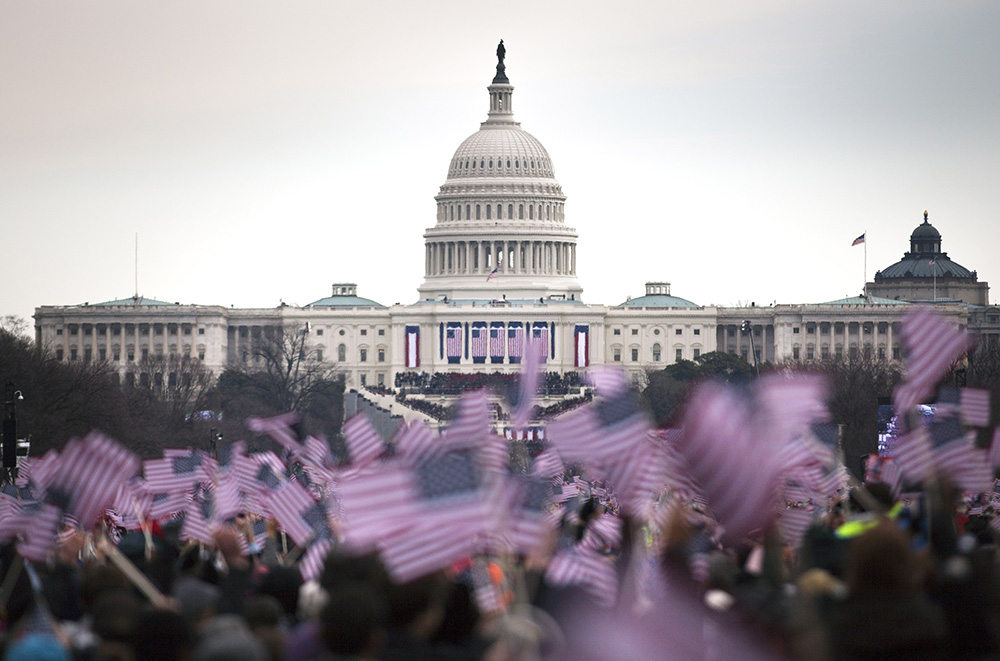

On Jan. 21, President Obama delivered his second inaugural address. The address drew inspiration from Abraham Lincoln and Dr. Martin Luther King, Jr., and was themed “Faith in America’s Future.”
In his inaugural address, Obama talked about having “fidelity to [America’s] founding principles,” such as freedom and equality. He supported the transition to sustainable energy and wanted America to act in response to climate change. He advocated for gay rights, immigration reform, and bipartisan cooperation. In alignment with his beliefs about freedom and equality, Richard Blanco, the fifth inaugural poet, was the first openly gay Latino to read an original poem at a president’s inauguration. His poem, titled “One Today,” also focused on the themes of togetherness, equality, and the future.
Other performers at Obama’s inauguration included Beyoncé and Kelly Clarkson. There was speculation that Beyoncé lip-synced the national anthem, and she later admitted to singing along to a pre-recorded track during the inauguration. Beyoncé defended her choice to lip-sync by explaining that low temperatures can sometimes lead to technological failures during performances.
Says sophomore Kelly Fang, who attended the inauguration, “I actually didn’t really notice [that Beyoncé was lip-syncing] because I was kind of far away, because you can’t really get close to them, only the congressmen were over there. It didn’t seem like she was lip-syncing, but after hearing all the news, I guess I’m not so sure.”
Fang was able to attend the inauguration because of a lottery she won at the charity she volunteers for. Says Fang, “I volunteer at an organization called Hearts, and if you get to a certain level, you’re in this lottery to get tickets to the inauguration, and I got the tickets.”
Obama’s inaugural address reproved partisanship, saying that America “cannot substitute spectacle for politics, or treat name-calling as reasoned debate.” Just a few days later, a bipartisan group of eight senators, including Republican senator John McCain, Obama’s former political rival, reached an agreement about immigration reform and are hopeful that it will pass.
Predictably, the second inauguration is usually not as exciting as the first. Says former White House chief of staff Kenneth M. Duberstein, “It’s a little bit like a second marriage. It’s not quite as exciting, the honeymoon is not as long and you realize on both sides that hope has been replaced by reality.” This statement holds especially true in Obama’s case because he made history as the first black president. Compared to the inauguration in 2009, an event that attracted international attention and 1.8 million attendees, only 600,000 to 800,000 people were expected, and less than a million attended, only half the deluge that crowded into Washington in 2009. There were 10 official balls in 2009, compared to two this year. Obama himself recognized the lessening novelty of his presidential career in March during a fundraiser in Chicago, saying, “So, I’m a little grayer now. It’s not as trendy to be involved in the Obama campaign as it was back then. Some of you have rolled up those HOPE posters and they’re in the closet somewhere.”
Obama’s popularity reportedly increased after his inaugural address, with 60 percent of respondents holding a favorable view of the president in the days following the inauguration. His favorability hasn’t been this high since 2009, when 79 percent of respondents had a favorable view of the president. Says Fang, “It was so patriotic, and everyone was singing and shouting together. It was a once-in-a-lifetime experience.”
